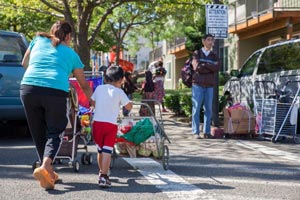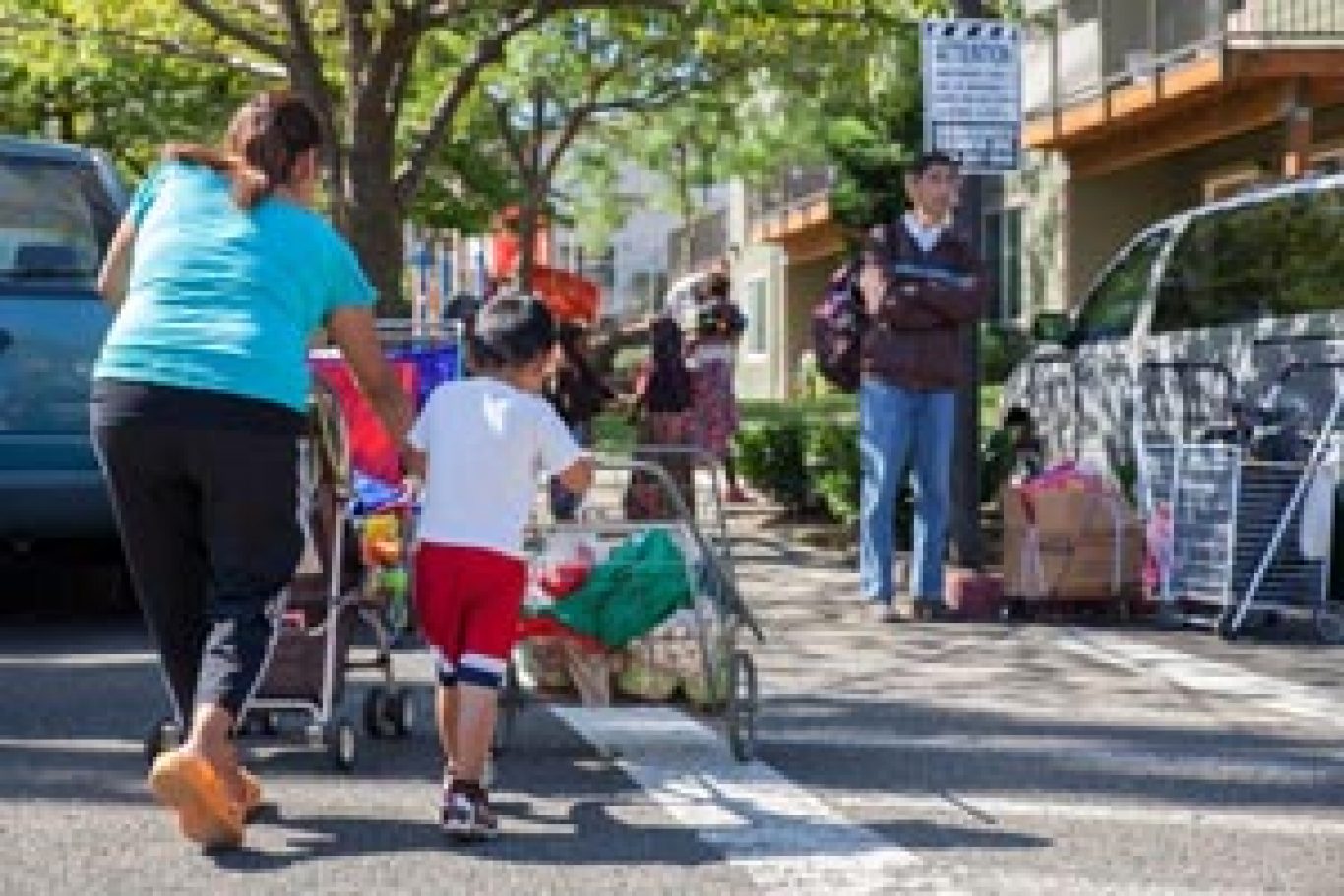Thousands may go hungry because of deportation fears – by David Sarasohn
Thousands may go hungry because of deportation fears – by David Sarasohn
May 18, 2017 – Hungry people in Oregon are sometimes reluctant to ask for help. They’re sometimes embarrassed, they’re sometimes too proud.
 And thousands of them may be too afraid.
And thousands of them may be too afraid.
By most counts, there are maybe 150,000 undocumented immigrants living in Oregon. Life happens to them, and to their children, the same way it happens to everybody else, and sometimes that means empty refrigerators, or a few too many days left in the month before the next paycheck. That’s when people go to food pantries, and why Oregonians in huge numbers contribute to food banks and food drives, so that when life happens to people, they can get that help.
Except if they’re afraid to go.
“We’re hearing from partner agencies up and down the Willamette Valley,” reports Susannah Morgan, CEO of Oregon Food Bank, “that they are hearing from people worried that asking for food could bring them to the attention of immigration authorities.”
As the last election showed, many Americans support forcing undocumented immigrants out of the country.
Not many have argued for starving them out.
For one thing, it doesn’t work. If afraid to appear in public, or to seek food for hungry children, undocumented immigrants who’ve built a life in Oregon won’t flee for the border – in politicians’ oily phrase, “self-deport” – but will go into hiding. That’s not good for them, which is why social service providers and local law enforcement prefer that undocumented immigrants feel they can get help without fear of deportation
It’s also not good for their children, who may well be American citizens, and who have a future in this country.
“I would hope most Oregonians would say it doesn’t matter if a client is a citizen or not,” says Morgan. “They’re living in our country and they ought to be fed.”
Right now, the Immigration and Customs Enforcement agency says it won’t pursue undocumented immigrants in “sensitive locations,” like schools, churches and hospitals. Catholic Charities, for example, holds its workshops for immigrants, on their rights and options, in schools and churches. It’s a limited list. The current list of “sensitive locations” excludes centers for emergency help, so undocumented immigrants might fear to go to a Red Cross shelter after a natural disaster – or to a food pantry.
Oregon Supreme Court Chief Justice Thomas Balmer has written the attorney general and homeland security secretary to ask that immigration agents stay out of Oregon courthouses to allow the state’s justice system to function.
“I’ve been out in the community talking to people,” says U.S. Rep. Suzanne Bonamici. “People in northwest Oregon are afraid, and they’re not getting the services they need.”
In Yamhill County, people told her they were afraid to send their children to school. In the law enforcement world, she heard of victims of domestic violence who feared to seek safety from the police.
Imagine, Multnomah County chair Deborah Kafoury told her, being more afraid of the government than of your abuser.
According to the Supreme Court, children of undocumented immigrants “have a right to go to school,” points out Bonamici. “It’s not good for the country if people are living in fear.”
Bonamici has introduced a bill to fix sensitive locations into law, and to expand them to include courthouses and social service facilities, including disaster centers, homeless shelters and food pantries. That would still, she notes, leave ICE plenty of places to carry out its responsibilities.
It might also bring some more people, and maybe some less frightened people, to Oregon food pantries, and maybe strengthen the lifeline grasped by so many residents of Oregon.
Oregon Food Bank hasn’t taken a position on Bonamici’s bill, and Morgan knows that support for it won’t be universal.
“We’ve received gifts from people who said their donation wasn’t meant for undocumented immigrants,” she says. “We’ve told them we don’t track that, and we’re not going to ask.”
When someone appears at a pantry because her family needs food, there are useful questions to ask.
Citizenship isn’t one of them.
